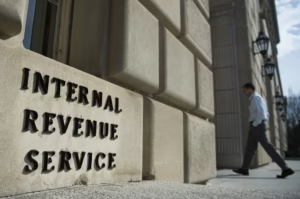On September 8, 2025, French Prime Minister Francois Bayrou arrived at the National Assembly in Paris to provide his general policy declaration during the parliamentary extraordinary session before a vote of confidence over the government’s austerity budget.
Despite Tuesday’s lackluster actions, France now has the second-highest bond yields in the eurozone following the fall of the administration led by Francois Bayrou.
Italy’s 10-year yield, BX:TMBMKIT-10Y, is 3.51%, which is slightly higher than France’s BX:TMBMKFR-10Y, which is 3.49%, according to Refinitiv data. (France was actually higher on Bloomberg, but that was because the benchmark bond used in the calculations changed.)
With a yield of 2.44%, Germany’s BX:TMBMKDE-10Y debt has the lowest yield in the eurozone.
The market is penalizing France for its political unrest, as evidenced by the country’s lower debt-to-GDP ratio of 114% compared to 138 percent for Italy.
Following the 364-to-194 vote against the government, strategists were evaluating their next course of action. Yacine Rouimi and other analysts at Deutsche Bank pointed out that Bayrou should have received 210 votes under the current alliance, indicating “cracks in the ruling coalition.”
It is now probable that French President Emmanuel Macron will name a new prime minister, who will have to overcome a resolution of censure. Julien Conzano’s UBS strategists anticipate a nomination in ten days.
To locate such a person, former Prime Minister Gabriel Attal had proposed appointing a negotiator to help in inter-party discussions.
The UBS strategists warn that the October submission of a finance bill “may mark a turning point in terms of political clarity and market volatility.”
How severe the trouble will be is the question in the markets.
“For the time being, it is highly improbable that there would be a true financial crisis with a self-reinforcing doom spiral in which larger deficits lead to increasingly higher yields. France is not a clear contender for a financial crisis because of its nearly balanced current account. Holger Schmieding, chief economist at Berenberg, stated, “Of course, we cannot rule it out completely.”
However, he anticipates that France would struggle through weak growth, slightly higher bond yields, and perhaps an easing of Macron’s pension changes.
According to the Deutsche Bank team, uncertainty will cause the French economy to lag by 0.3 percentage points. “Uncertainty shocks are still affecting activity, but our simulations indicate they are less harmful now than they were in the past. Since France has reportedly adapted to living in a high level of uncertainty, they stated that it is doubtful that the present uncertainty shock will cause the economy to enter a recession anytime soon.





